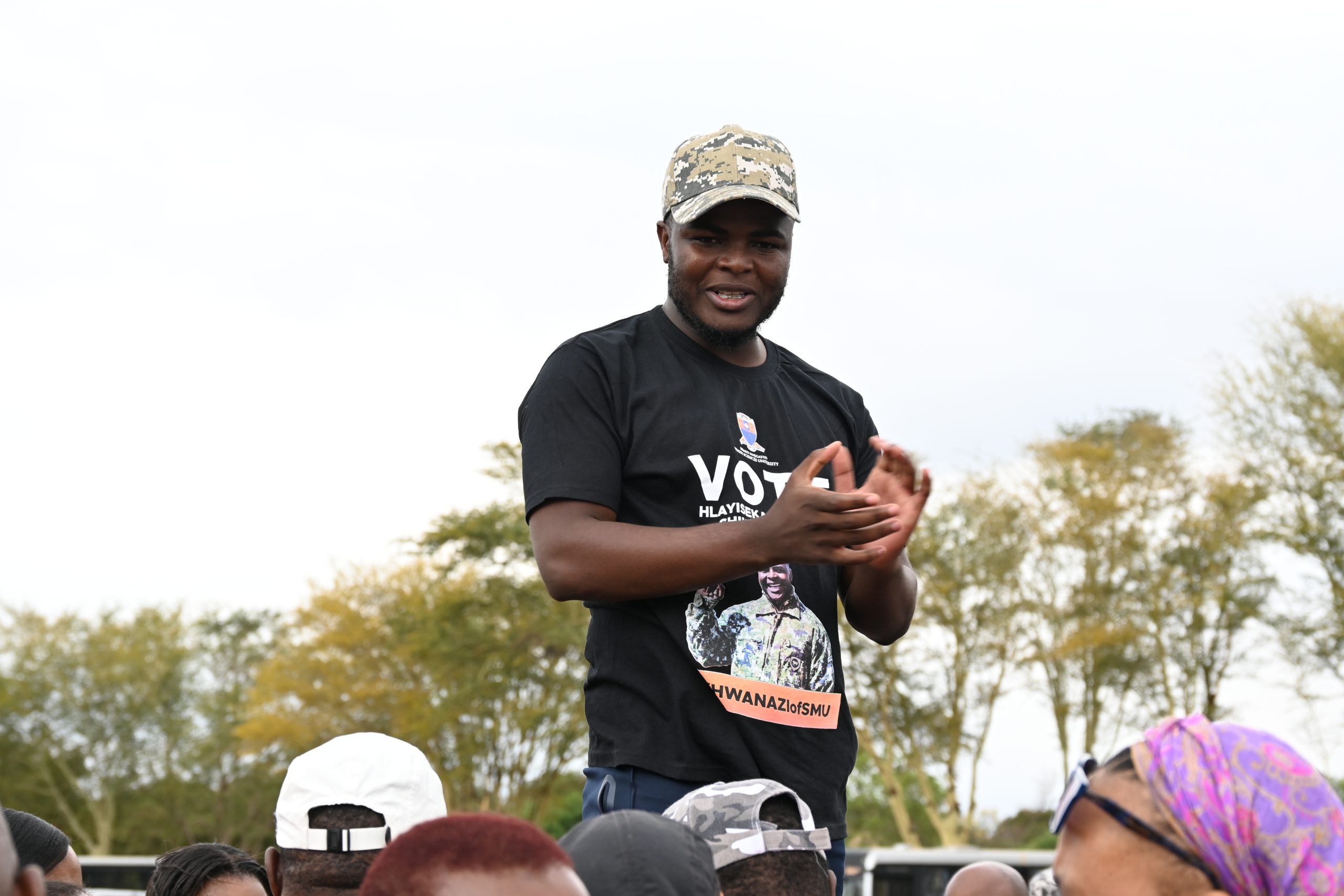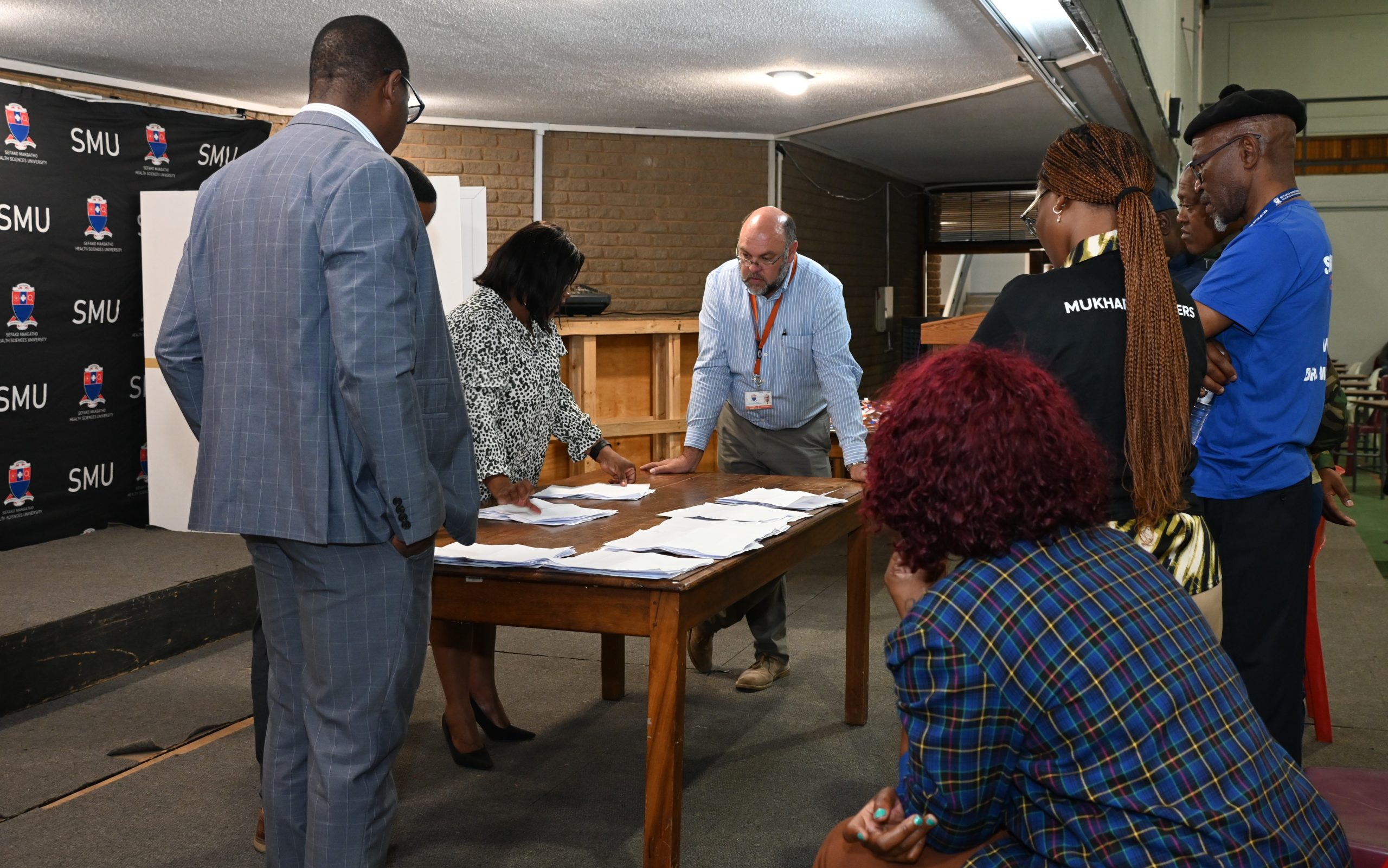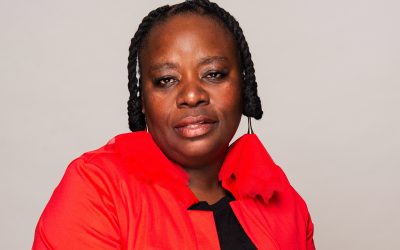The air inside the University Sports Complex at Sefako Makgatho Health Sciences University (SMU) was charged with anticipation as administrative and support staff converged for a landmark occasion. Far from a routine gathering, the assembly marked a pivotal moment in the University’s governance story—the election of their voice to the SMU Council, the highest decision-making body entrusted with shaping the institution’s future.
 Interim Registrar, Mr Sello Simon Mokoena, who had taken office only weeks earlier, set the tone as he opened the proceedings. His words carried both weight and warmth. “The strength of SMU lies in the collective efforts of all its people,” he told the packed hall. “This election reflects our commitment to inclusive governance and to ensuring that every sector of our community has a voice at the highest decision-making level.”
Interim Registrar, Mr Sello Simon Mokoena, who had taken office only weeks earlier, set the tone as he opened the proceedings. His words carried both weight and warmth. “The strength of SMU lies in the collective efforts of all its people,” he told the packed hall. “This election reflects our commitment to inclusive governance and to ensuring that every sector of our community has a voice at the highest decision-making level.”
Two candidates stood before their colleagues: Hlayiseka Mukhari Shikwambana, a Laboratory Assistant in the Department of Biochemistry and Biotechnology, and Dr Tshifhiwa Mulaudzi, Deputy Director for Assets and Stores. Both were seasoned professionals with deep ties to the institution, and both were eager to carry the hopes of their peers into Council chambers.
The election unfolded through a secret ballot, tightly overseen by governance and audit structures to ensure fairness. Silence filled the hall as votes were counted and verified. Then came the announcement: Shikwambana had secured 268 votes to Mulaudzi’s 204. With a clear margin, he was declared the new Administrative and Support Staff Representative to the SMU Council.
 The moment was met with applause, but it was Shikwambana’s response that left a lasting impression. Taking the podium, he spoke with humility and conviction. “Your support is both humbling and empowering,” he began. “I pledge to represent all workers without fear or favour. Your struggles, challenges, and aspirations are my own.”
The moment was met with applause, but it was Shikwambana’s response that left a lasting impression. Taking the podium, he spoke with humility and conviction. “Your support is both humbling and empowering,” he began. “I pledge to represent all workers without fear or favour. Your struggles, challenges, and aspirations are my own.”
He described administrative and support staff as the “lifeblood of the institution,” emphasising their essential role in sustaining SMU’s academic mission. His words resonated with colleagues who have long sought recognition for their often-unseen contributions.
Shikwambana’s connection to SMU is more than professional—it is personal. Originally from Giyani and raised in Julesburg, Rhulani, Tzaneen, he has spent over a decade at the University as both a student and staff member. He holds three SMU degrees and is currently pursuing a PhD in Biochemistry, researching molecular biology and diabetes management. Alongside his administrative duties, he contributes academically by assisting with lectures and supervising postgraduate students.
This blend of scholarship and service shapes his vision for Council. He spoke of strengthening accountability within governance structures, creating promotion and reward systems to motivate staff, and ensuring that the voices of administrative and support employees are heard in every decision.
“Together, we will make SMU not only a place of academic excellence, but also a university of first choice for employees, students, and partners alike,” he declared. “With unity, transparency, and commitment, we can build a future where every staff member feels respected, valued, and proud to serve.”
The election marked more than a leadership choice—it was a reaffirmation of SMU’s commitment to participatory governance. By securing representation for administrative and support staff, the University continues to strengthen its culture of inclusivity and shared responsibility.
As the meeting drew to a close, the atmosphere was buoyant. Staff praised the transparency of the process and voiced optimism that Shikwambana’s leadership would amplify their interests at the Council table. For many, it was not just a win for a candidate but a win for every worker whose efforts fuel the University’s mission.
By Dimakatso Modise



